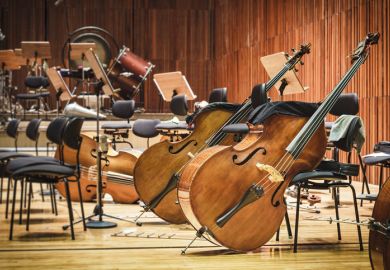In an essay on German music published in 1915, collected for the first time in this volume, Donald Francis Tovey (1875-1940) wrote: "Music is, of all the arts, perhaps the most impossible to explain in words; and writers on music deserve more sympathy than blame for the readiness with which they welcome topics that distract attention from the difficulties of purely musical questions."
Any reader of The Classics of Music will quickly appreciate that Tovey had no reason to excuse himself with this plea. In fact the tone is unusually forgiving of a tendency in music writing that Tovey deplored. A private letter came closer to his true feelings: "Music literature... bothers me a great deal; it's all either nebulous or dull, and often entirely beneath criticism... a good score is incomparably more important than all the books about music ever written."
For Tovey, one of the least necessary books for understanding music was the history book. He echoed George Saintsbury, who "stated that in his opinion the only duty that the student of literature had to history was just to take off his hat as he passed the history lecture room", trumping Saintsbury by adding that "music of all the fine arts is the one that has least duty towards history".
Tovey abhorred what he saw as the prevalent notion that music was an art that was intended to illustrate something else, and in his many discussions of Beethoven (his favourite composer) entirely refuted the notion that anything was to be gained by considering the master's late works in the light of his deafness - as was still the vogue during the earlier part of Tovey's life - or through any other confounding of life and works. In a lecture series on Beethoven delivered in 1922, also in this volume, Tovey pointed out: "At the time when (Beethoven) was in the lowest depths of despair, or the most squalid and painful discomfort, he was writing perhaps the most triumphant music, often the most uproariously triumphant music" and came to the pleasingly counter-intuitive conclusion: "It seems to me that in all these things you can learn so much more of the environment from the music... than you can learn of the music from the environment."
So saying, Tovey ruled out by anticipation most of the writing about Beethoven of recent times, with its Immortal Beloved, its over-protective Beethoven driving his nephew to attempt suicide, its facsimile of the mutilated title page of the Eroica Symphony , which Beethoven defaced in a fit of pique over Napoleon's carryings-on, Beethoven the romantic hero, and all the rest of it. What was left was what many of today's popular commentators hesitate to address, the music, which Tovey - himself very much a populariser - spent his life promoting through his career as a concert pianist, his founding and conducting of the Reid Symphony Orchestra, his teaching and his voluminous writings. "I believe in actual musical illustrations because I think that music, like other arts, can be effectively illustrated only by itself," he wrote, and in his analyses of musical works tried to refer to nothing outside the work in question, considering it purely according to the context it established for itself, and citing only its own materials.
It is hard not to see Tovey's slip in popularity as an indictment of some aspects of the current age. Prurient interest in the lives of artists swamps discussion of their works - and indeed, depressingly, is often much more interesting than their works. Tovey offered none of it. Despite his years in academia, he was careful to minimise technical jargon and wrote for what he saw as an enlightened, intelligent, non-expert readership. He claimed in the introduction to a volume of musical analyses: "None of these essays assumes any more technical knowledge than is likely to be picked up in the ordinary course of concert-going by a listener who can read the musical quotations or recognise them when played."
The fact that he then proceeded to bombard the reader with explanations of tonality and key relations only shows how highly he could afford to regard that reader. His many essays on particular works of music ("essays in musical analysis" - a superior type of programme note) were published shortly before a performance of the work and were designed not to be savoured for their own qualities (which, as The Classics of Music demonstrates, are many) but as a prelude to listening to the piece - and, as Tovey hoped, deriving greater enjoyment as a result of his efforts.
The Classics of Music collects such stray "essays in musical analysis" as have failed to appear in previous Oxford University Press volumes, together with lectures, broadcasts, entries for the 1929 Encyclopaedia Britannica , sundry journalistic writings and other bits and bobs unpublished in volume form. It is a magnificent work, edited by Michael Tilmouth until his death in 1987, and completed by David Kimbell and Roger Savage.
Alongside all the musical analysis stand Tovey's persuasive views on programme music, the musical "classic" ("No work of art is wonderful merely for the time in which it was written. If it is wonderful, it is always going to be wonderful"), "emotional" versus "reserved" performance, and intrusive editors. (Tovey has five recommendations for turning a musical text into a Leipzig Conservatoire edition, including the quietly caustic:
"When the composer has written something which strikes the editor as unusual, the editor shall tacitly substitute what he himself would have written in the circumstances".) Dr Johnson is liberally quoted, and Tovey shares with Johnson a high rhetorical style that conceals rather than flaunts an immense fund of wit and humanity. Both are irresistibly quotable (Tovey on Mahler's symphonies:
"Their naivete is conspicuous but open to suspicion, like the Simple Life as lived by billionaires"), and both tend to write complex, oracular sentences that can frighten the timid but generously reward any reader who makes the effort. No less than Johnson's, Tovey's is a voice that still needs to be heard.
Christopher Wood is a freelance journalist who specialises in music.
The Classics of Music: Talks, Essays, and Other Writings Previously Uncollected
Author - Donald Francis Tovey
Editor - Michael Tilmouth (editing completed by David Kimbell and Roger Savage)
ISBN - 0 19 816214 6
Publisher - Oxford University Press
Price - £60.00
Pages - 821
Register to continue
Why register?
- Registration is free and only takes a moment
- Once registered, you can read 3 articles a month
- Sign up for our newsletter
Subscribe
Or subscribe for unlimited access to:
- Unlimited access to news, views, insights & reviews
- Digital editions
- Digital access to THE’s university and college rankings analysis
Already registered or a current subscriber?



